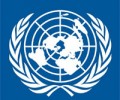Serbia: Committee on Enforced Disappearances calls on Serbia to guarantee the rights of victims
 Amnesty International welcomes the Concluding Observations of the Committee on Enforced Disappearances, published last Friday, following their consideration of Serbia’s initial report on its implementation of the International Convention for the Protection of All Persons from Enforced Disappearance.
Amnesty International welcomes the Concluding Observations of the Committee on Enforced Disappearances, published last Friday, following their consideration of Serbia’s initial report on its implementation of the International Convention for the Protection of All Persons from Enforced Disappearance.
Serbia should implement all recommendations made by the Committee, which would go a long way to redress the rights of the disappeared and their relatives, who are still waiting for justice and reparation for the war crimes and crimes against humanity during the wars of the 1990s.
The Committee’s comprehensive recommendations reveal how far Serbia has fallen short of their obligations under the Convention, which the country ratified in May 2011. Serbia has both failed to bring all those responsible for enforced disappearances to justice, and violated their duty to respect and protect the rights of the victims of enforced disappearances – including the relatives of the disappeared.
The Committee emphasized that Serbia should ensure that all cases of enforced disappearance committed in the context of past armed conflicts are investigated thoroughly and impartially without delay and that all those found responsible, including commanding officers and civilian leaders, are punished in accordance with the gravity of their crimes.
Amnesty International notes the government’s recent dismissal of allegations related to the responsibility for the killing in Kosovo of Kosovo Albanians, whose bodies were found in the mass grave at Rudnica. The organization therefore particularly welcomes the emphasis placed by the Committee on the need to bring to justice all those responsible for the transfer of bodies of Kosovo Albanians murdered in 1999 to Ministry of Interior sites in Serbia, including Batajnica, Petrovo Selo, and Rudnica, as well as Lake Perucac.
The Committee also stressed the obligation on Serbia to respect the rights of the relatives of the disappeared, and, recognizing that the majority of the relatives are women, called for the introduction of “a comprehensive, gender sensitive, system of reparation.” The Committee also called on Serbia to ensure that all those who have suffered direct harm as a result of enforced disappearances should receive “medical and physical rehabilitation”. The Committee further recommended that the rights of the relatives should be included in the current draft bill of the Rights of War Veterans, Disabled War Veterans, Civilian Victims of War and their Family Members.
In order to implement these key recommendations, Serbia will need to adopt legislation that criminalizes enforced disappearances, as defined in the Convention, and recognizes the definition of victim set out in Article 24 of the Convention.
On a practical level the Committee considered a number of issues that currently hinder the progress of investigations, and made further recommendations. These included the provision of “sufficient personnel, and technical and financial resources” to the Office of the War Crimes Prosecutor and the suspension of military officers or civilian superiors suspected of taking part in an enforced disappearance. Finally, in light of the reported threats to witnesses in prosecutions for war crimes, the Committee called for the investigation of all alleged threats and intimidation against witnesses, and the strengthening of the WPU “with a view to guaranteeing the highest possible standard of protection”.
Amnesty International’s submission to the Committee can be found here http://amnesty.org/en/library/info/EUR70/001/2015/en








